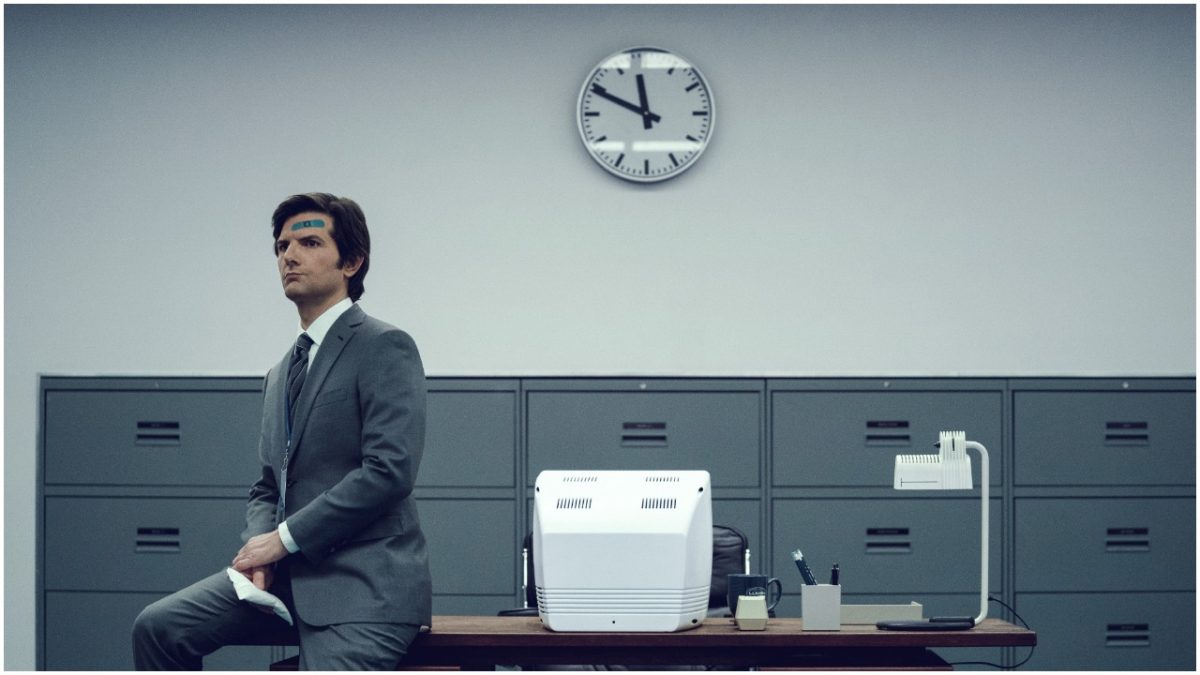Apple TV+’s ‘Severance’ Is an Unsettling, Mordant Satire of the Work-Life Balance
Adam Scott stars in this darkly humorous take on office culture.

Living through a global pandemic has irrevocably changed our lives and our communities. In addition to exposing humanity’s worst, most selfish traits (really Jan, you can’t wear a mask at Target?), it has forced us to take a sharper look at the systemic issues that plague our government, our infrastructure, and our working lives. This upheaval of norms has made us reconsider who we trust, what we value, and how we wish to spend the rest of our lives. Much of this reevaluation is focused on work. As scores of people began working from home, they adapted to a work life sans corporate culture – no more commutes, no more suits, no more bullshit corporate culture. Headlines heralded the Great Resignation, which saw employees resigning en masse in pursuit of careers that offered more of a work-life balance.
Toxic workplaces are nothing new: we’ve all experienced stagnant wages, patronizing bosses, and job dissatisfaction. And the rise and grind culture encouraged a normalization of sacrificing oneself to our corporate overlords. But the mass death and disaster wreaked by the pandemic has broken through our sense of collective numbness and “business as usual.” And the cognitive dissonance is utterly jarring. The fact that humans are still expected to punch numbers and fill spread sheets while thousands die every day is deeply unsettling. With Europe on the edge of WWIII, it’s increasingly difficult to focus on, say, writing a hot take on the latest The Batman trailer.
Which brings us to Apple TV+’s new drama series Severance. Created by Dan Erickson and directed by Ben Stiller, Severance follows Mark (Adam Scott) an employee of the ominous Lumon Industries. Mark, like his co-workers, has undergone the severance procedure, a surgical bifurcation of his memories that permanently splits his work life and his home life. While at work, Mark remembers nothing of his life, his childhood, his relationships. Not even his last name, which has been replaced with a single initial. And the reverse is true as well: once Mark leaves work, he is himself again, with no memory of what he does at work or who he works with.
It’s a novel idea, part Charlie Kaufman, part Black Mirror, with a dash of Office Space nihilism. And Stiller’s terrific direction makes the most of the oppressively bland, eerie workplace, with endless white hallways, colorless offices, and emotionless employers, like Patricia Arquette’s chilly supervisor Harmony Cobel and her fixer Mr. Milchick (Tramell Tillman). One may wonder why anyone would chose this kind of life for themselves, and Severance makes clear that its employees are deliberately choosing the procedure. In Mark’s case, severance gives him an eight-hour reprieve from the crushing grief of his wife’s death.
Mark works alongside Irving (John Turturro) and Dylan (Zach Cherry) in the macrodata refinement division, which involves sorting an endless stream of numbers into various different bins. As “innies”, they experience a life that is solely work, a prison from which only their outside selves, or “outies”, get to experience. New hire Helly (Britt Lower) wakes up to find herself severed, but refuses to cooperate with the workplace indoctrination. As Helly repeatedly attempts to escape and contact her “outie”, she forces Mark to reconsider the choices that got him severed in the first place. Of course, this upheaval ceases to exist in the outside world, until a figure from Mark’s work life begins to bleed into his home life.
Stiller maintains an unsettling, tense tone throughout the series, with enough dark humor to keep the show from being utterly oppressive. He’s matched by the pitch-perfect performances from the cast, emotionally anchored by Scott’s performance as two sides of the same man. Severance is many things: a workplace satire, a mystery box show, a meditation on memory and grief. But its most poignant commentary is in how the show artfully captures the experience of working while the world burns around you. We’re all one self-ordered lobotomy away from things going back to “business as usual”.
(image: Apple TV+)
—The Mary Sue has a strict comment policy that forbids, but is not limited to, personal insults toward anyone, hate speech, and trolling.—
Have a tip we should know? [email protected]
